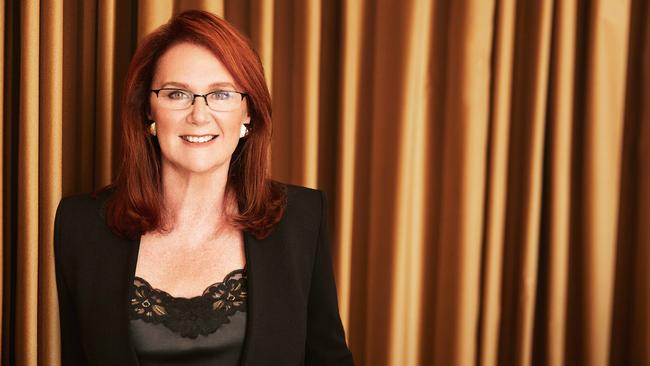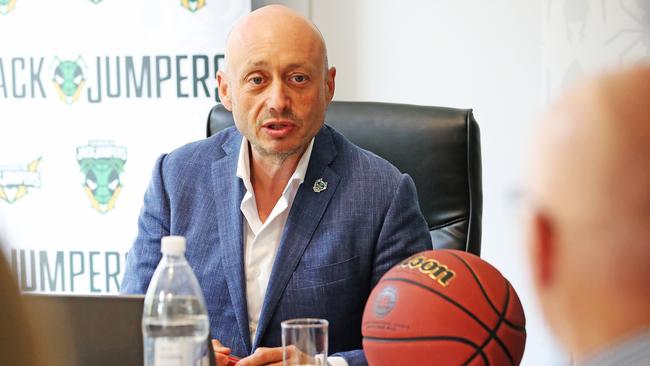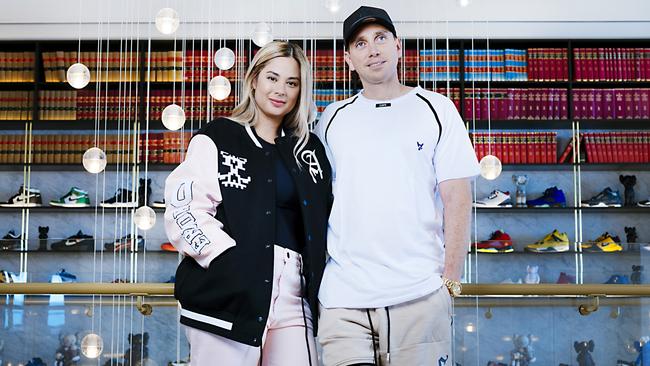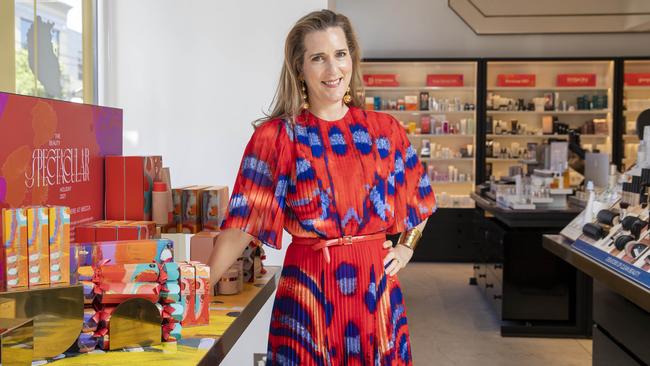Tania Austin one of Australia’s most profitable fashion magnates as Decjuba soars
Tania Austin, the owner of Decjuba, is one of the most impressive new names on The List – Australia’s Richest 250 this year. But there are others also making big money in fashion.

There’s still plenty of life left in Australian fashion, especially judging by the profits some of the most successful names in the industry are posting.
Take Tania Austin, the owner of one of the most successful, and profitable, female fashion brands in Australia.
Her Decjuba has 140 stores and last year made a $37m profit from $173m revenue, according to documents lodged with the corporate regulator.
–
Tania Austin
• Age: 50
• Lives: Melbourne
• Estimated wealth: $640m
• Source: Retail
–
Secrets of success: Buying small fashion chain Decjuba and transforming it into a big, and profitable, women’s fashion chain
At that level, Austin’s business made a bigger statutory profit in 2021 than big private company names such as Lindsay Fox’s Linfox, the PFD Foods wholesale distribution business started by Richard Smith, Mick Power’s BMD construction giant and the Hutchison’s construction company owned and run by Scott Hutchison and his family.
Decjuba is also more profitable than another notable fashion name on The List – Australia’s Richest 250, Naomi Milgrom.
Milgrom took a hard line against landlords last year, refusing to pay rent amid a series of pandemic-related lockdowns and work-from-home orders by state governments.

Financial documents for her ARJ Group Holdings, the owner of the wider Sussan business, show just how successful that hard-line stance has been across the chains, and also the hit the retailer has taken because of Covid.
ARJ recorded a net profit of $34.8m last year.
The accounts also reveal Milgrom’s business empire was eligible for about $34m in federal government JobKeeper subsidies and that 68 stores across the group were permanently closed in 2021. It also showed almost half of the profit result was due to rental relief granted by Sussan’s landlords around the country.
Milgrom bought Sussan from her billionaire father Marc Besen in 2003, five years before Austin started Decjuba with a handful of stores after she left Cotton On, the retail chain founded by ex-husband Nigel Austin.
Decjuba employs more than 1400 women across the group, and has been a big success for Austin who is said to have made $50m from leaving Cotton On and taking a six-month break from fashion retail before buying Decjuba, then a small chain.
Austin was among the most notable debutants on The List this year, when the 2022 edition was published in late March, alongside the likes of beauty retail phenomenon Jo Horgan and her husband Peter Wetenhall. They placed on The List for the first time with a combined $647m.

Another member of The List is Larry Kestelman. An entrepreneur best known for being the owner of the National Basketball League, Kestelman also owns a collection of companies in technology, sports and retail.
His PAS Group owns several womenswear brands, and last year he also bought footwear and fashion retailer and wholesaler Brand Collective.
Then there is Simon and Tahnee Beard, two of the hottest new names in Australian fashion, who have built their estimated $503m fortune from a retail outfit that employs DJs and sells T-shirts, baseball caps and shoes.
Their fast-growing Culture Kings traces its origins back to when Beard started selling clothing at a Gold Coast market at the weekend, before he and Tahnee started an eBay business selling goods imported from the US.
They would open their first streetwear retail outlet in 2008 – the same year Austin bought into Decjuba – and sold part of Culture Kings last year to Boston private equity firm Summit Partners and its fashion retail brands investment company a.k.a brands.

It has since floated on the New York Stock Exchange. The Beards maintain a shareholding in a.k.a, which also owns Australian retailer Princess Polly, but the group has struggled at times to find favour with investors.
Since listing at $US10 per share last September, a.k.a brands shares have fallen about 56 per cent. They have steadied in the past month though, mostly tracking sideways.
Beard might look and dress like a new age entrepreneur, but there is also something old-fashioned about his and wife Tahnee’s success.
While it all looks modern, with the basketball courts, DJ and in-house barber, every visit to a Culture Kings store is meant to be a memorable experience.
In other words, there’s life in bricks and mortar retail yet.
Which is also what Austin has proved with Decjuba, while Milgrom continues to survive well with the Sussan chain.
Meanwhile, Horgan is pressing ahead with Mecca’s biggest ever store in Melbourne’s Bourke Street that is slated to begin building work in April next year.





To join the conversation, please log in. Don't have an account? Register
Join the conversation, you are commenting as Logout